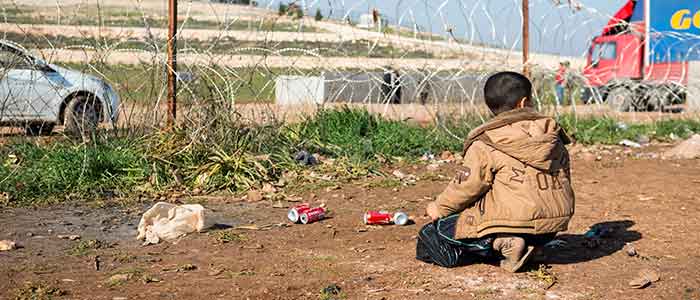Web_SyrianBoyTurkishBorder_iStock_000024765194_Large.jpg

Young Syrian refugee at Turkish border
The summit, set for 23 and 24 May, has been convened to discuss flaws in the global humanitarian system and how these can be addressed. Governments and NGOs are expected to attend.
However, last week the medical aid agency Médicins Sans Frontiéres pulled out of the summit saying its agenda neglected the need to reinforce the obligations of states to uphold and implement IHL and to protect refugees. Instead, it was focused on new ways to deliver aid.
“As shocking violations of IHL and refugee rights continue on a daily basis, World Humanitarian Summit participants will be pressed to a consensus on non-specific, good intentions to ‘uphold norms’ and ‘end needs’,” MSF said in a statement.
“The summit has become a fig-leaf of good intentions, allowing these systematic violations, by states above all, to be ignored.”
Last week, a refugee camp in Syria, close to the Turkish border, was bombed leaving dozens of people dead.
And earlier this year hospitals in opposition-held areas of Syria stopped sharing their GPS coordinates with Russian and Syrian authorities after repeated attacks on medical facilities and staff.
Attacks on civilians and civilian infrastructure in Yemen have also been well-documented.
In a report published today, the House of Commons International Development Committee urged the UK government to make violations of IHL a priority at the summit.
Chair Stephen Twigg highlighted the “distinct lack of agreement” on what the summit’s priorities should be.
The committee’s report noted that the absence of binding laws to eliminate IHL was not the problem, rather it was the “persistent failure” of certain parties to comply with them and of others to enforce them.
The UK government has come under fire from the committee for its “deeply disappointing” response to accusations that Saudi Arabia has violated IHL in its bombing campaign in Yemen.
It said the government should “seize the opportunity” to bolster IHL by ensuring political commitment to it is universal and not limited to a few parties, and reinvigorating negotiations for a global, intergovernmental mechanism to ensure IHL compliance.
Altogether, the committee identified six priorities for the UK government including institutional and funding reforms, addressing the unintended consequences of counter-terrorism legislation and humanitarian responses, and increasing the involvement of local actors and ensuring the system is inclusive.
The UK’s Overseas Development Institute welcomed the MPs’ conclusions, in particular their focus on making the humanitarian system more global and inclusive.
Managing director Sara Pantuliano said this reflected a central recommendation made in a recent ODI report that would see “international organisations and United Nations agencies shift away from direct aid delivery to enabling, incubating and funding respondents closer to those in need”, such as local or specialised organisations.












